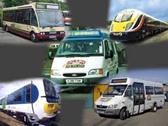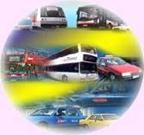
КАТЕГОРИИ:
Архитектура-(3434)Астрономия-(809)Биология-(7483)Биотехнологии-(1457)Военное дело-(14632)Высокие технологии-(1363)География-(913)Геология-(1438)Государство-(451)Демография-(1065)Дом-(47672)Журналистика и СМИ-(912)Изобретательство-(14524)Иностранные языки-(4268)Информатика-(17799)Искусство-(1338)История-(13644)Компьютеры-(11121)Косметика-(55)Кулинария-(373)Культура-(8427)Лингвистика-(374)Литература-(1642)Маркетинг-(23702)Математика-(16968)Машиностроение-(1700)Медицина-(12668)Менеджмент-(24684)Механика-(15423)Науковедение-(506)Образование-(11852)Охрана труда-(3308)Педагогика-(5571)Полиграфия-(1312)Политика-(7869)Право-(5454)Приборостроение-(1369)Программирование-(2801)Производство-(97182)Промышленность-(8706)Психология-(18388)Религия-(3217)Связь-(10668)Сельское хозяйство-(299)Социология-(6455)Спорт-(42831)Строительство-(4793)Торговля-(5050)Транспорт-(2929)Туризм-(1568)Физика-(3942)Философия-(17015)Финансы-(26596)Химия-(22929)Экология-(12095)Экономика-(9961)Электроника-(8441)Электротехника-(4623)Энергетика-(12629)Юриспруденция-(1492)Ядерная техника-(1748)
Public transport
|
|
|
|
Exercise 12. Read and translate the Supplementary text 1 (ST 1).
Public transport is the central plank of any sustainable transport policy. Many environmental and social problems are caused by our dependance on the car and subsequent rising traffic levels. But if more people are to use public transport for more journeys we need to see a substantial change in the  quality and quantity of services.
quality and quantity of services.
In a modern world people need to travel and indeed the ability to travel opens up many wonderful opportunities. But if we are all going to enjoy the benefits of travel, we have to tackle how we travel. In part that means rethinking what sort of journeys actually need to be made. It also means encouraging walking or cycling, and fundamentally it means making a shift from private to public transport to trains, buses and trams.
How many times have we sat in, or walked, or cycled past a traffic jam and counted how many cars are occupied only by the driver? This is not a rational way of getting from A to B.
There are four main reasons why people in most situations, given a choice between private and public transport, opt for the private car:
 1. Once a car has been purchased, taxed and insured there is a strong incentive to use it for as many journeys as possible. The user accounts for the journey costs purely in terms of the fuel used. This may not seem fair when comparing the costs of motoring with the costs of using public transport but it is a fact of life which must be accepted.
1. Once a car has been purchased, taxed and insured there is a strong incentive to use it for as many journeys as possible. The user accounts for the journey costs purely in terms of the fuel used. This may not seem fair when comparing the costs of motoring with the costs of using public transport but it is a fact of life which must be accepted.
2. Public transport is perceived by the average citizen as being very inferior to the car as a means of travel. In terms of flexibility and convenience, the car has the major advantage of direct control by the user. The journey can be planned without reference to a fixed route or a timetable. Given the constraints of road layouts and the availability of parking spaces, the car owner can choose the most convenient route, gain door-to-door travel and set off at a time of the owner’s choosing. Even when held up by congestion a certain flexibility is retained because it may be possible to switch to an alternative route. Where this is not possible, the comfort of the car makes waiting in a traffic jam more tolerable than on public transport.
3. As car interiors have become more refined, with better seating, ventilation and sound proofing, and more extras such as stereo systems, the level of comfort throughout the journey is much higher in a car than on public transport.
4. The most important advantage is the undoubtedly shorter journey times offered by the car door-to-door. The exception to this rule is where the journey is very short, making walking quicker, or where origin and destination are very close to public transport links. In general car speeds can be as much as two and a half times faster than a bus. The bus has to stop and pick up/set down passengers and road improvements generally favour the car.
In order to encourage people out of cars and onto trains, buses and trams, public transport should be made more competitive with the car.
|
|
|
Exercise 13. Answer the following questions:
1. Most of the cars in traffic jams “are occupied only by one driver”. Why isn’t it “a rational way of getting from A to B”?
2. Why do so many people favour private cars over public transport?
3. What could be done to make people use public transport instead of their cars?
4. What is door-to-door travel?
Exercise 14. One of the suggestions discussed in a BBC debate on public transport concerns charging drivers in cities to prevent them from driving in the city centres. Read the sentences below and decide which of them are for and which are against the idea. Which of them do you agree with?
Should the public be charged to drive in cities?
1. It will make people think about alternatives before they drive into cities.
2. It is the only way to reduce traffic.
3. Business will be badly affected.
4. It will lead to more congestion and pollution in other areas.
5. Most car journeys are short, so people could walk or cycle instead.
6. People will just pay and grumble. It won’t stop them driving.
7. If traffic is reduced it will make city streets much nicer places to be.
8. It would generate income that could be spent on green transport schemes.
9. Pollution in inner cities* is a big problem so any incentive to leave the car behind would help.
10. Public transport isn’t cheap or convenient enough to replace cars – for many journeys there is no alternative.
* inner city – an area near a centre of a large city where a lot of poverty and other social problems exist
|
|
|
|
|
Дата добавления: 2014-11-29; Просмотров: 951; Нарушение авторских прав?; Мы поможем в написании вашей работы!